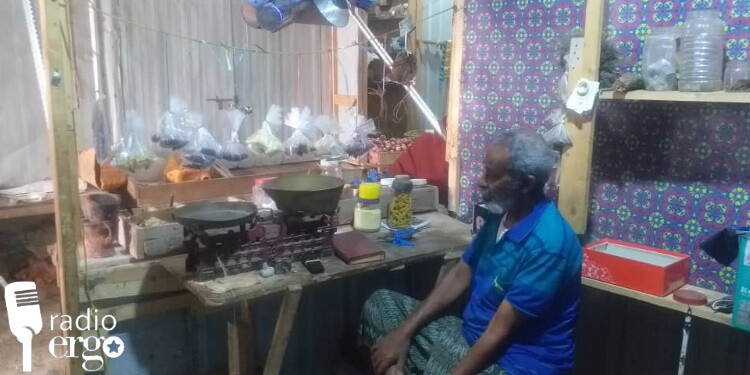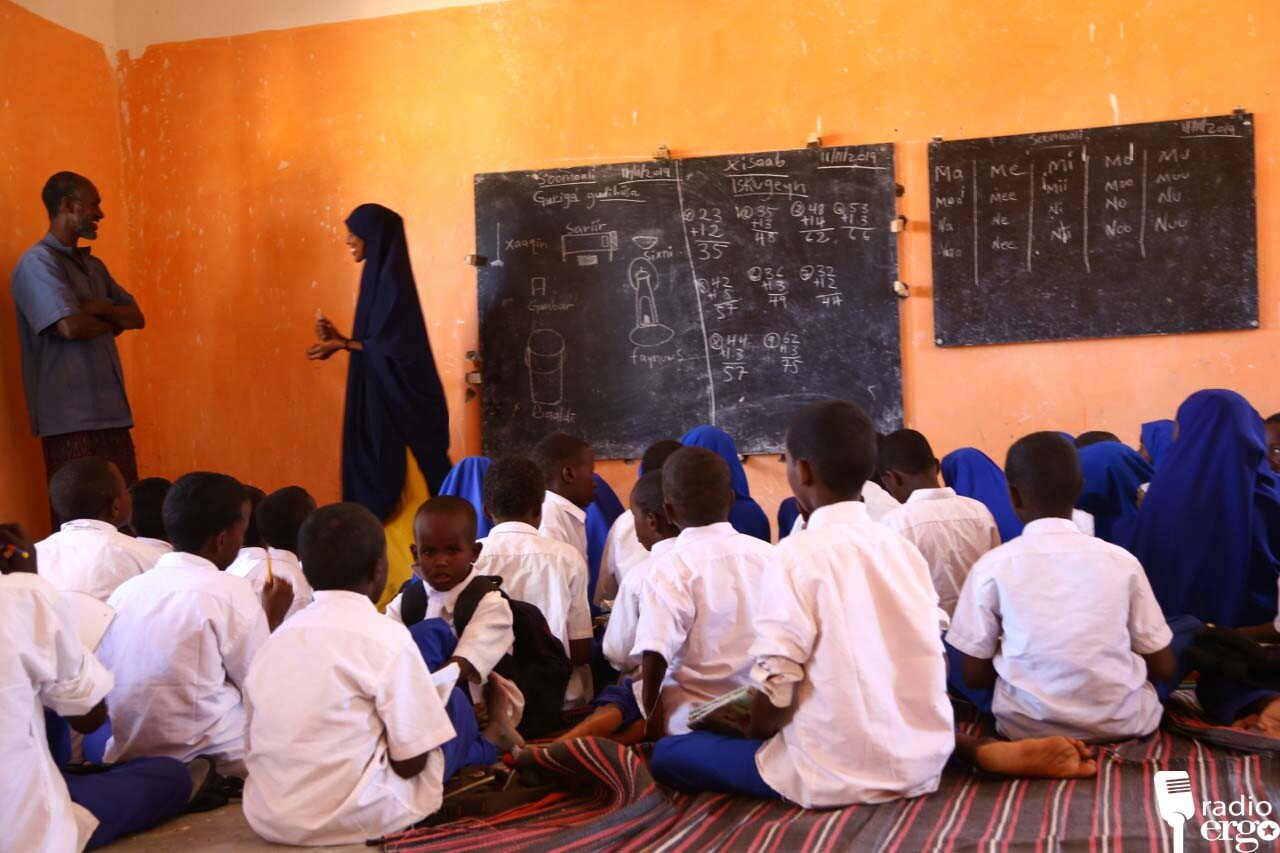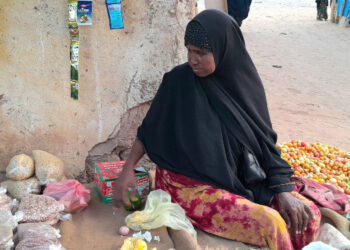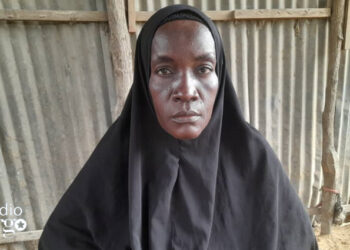(ERGO) – Abdikadir Mohamed Abukar, 75, owns a small shop in Mogadishu’s Madina market selling herbal medicine. Since June he has been struggling to provide for his family of four, as the medicinal plants are rarely brought to market any more due to the drought.
“We don’t cook three meals nowadays because of the drought. We cook enough food for supper, we eat some of it and save the rest to eat in the morning as breakfast. Everything has become expensive and our only source of income has been greatly affected by the drought,” he told Radio Ergo.
Abdikadir is worried he and his wife might be evicted as he has not been able to pay the $60 house rent for two months. He thought of closing the shop but has no alternative source of income.
“I used to pay the rent and all the other bills without any difficulty, but now things have changed due to the drought and inflation,” he said.
At retirement age, Abdikadir is the only one supporting his two grandchildren. His son was sent to Eritrea for military training and has not been heard of since he left two years ago. Due to lack of fees the grandchildren are not in school.
The plants he used to sell are rare and the few that are in the market are too expensive.
“A kilogram of myrrh goes for $12 in Bakara market. I don’t have money to buy it as it’s double the amount it was before the droughts. I have stopped selling some of the medicinal plants because of the high price. Everything has become expensive all of a sudden,” he said.
Myrrh is added to water and applied to babies’ bodies to prevent skin infections. Balanophoraceae is another tree that is not available due to the drought, whose root is crushed and added to tea as an antibiotic. Erethraea, also unavailable, is used to treat sexually transmitted infections.
Abdikadir tried to get some of these plants on credit from wholesalers in Bakara market but he was refused.
He and his family moved to Mogadishu in 2019, after losing 25 of their 30 goats in Gendershe village, 30 km from Marka town in Lower Shabelle region.
Another herbal medicine seller, Dekow Osman Ali, who has been in this business for 15 years, has been struggling this year to make any profit at all. His normal take home used to be $15 a day.
The father of four said the impact of the drought on his business has been felt at home, where they are down from three meals a day to just one.
Dekow noted that the medicinal plants sold in Mogadishu’s Bakara market where he buys from is dry. The mostly wild plants sold there are brought from Lower Shabelle region.
“We used to get different types of medicinal plants at a good price before the drought. Our customers used to buy from us at equally affordable prices, but now the plants are dry and the price is high. To make it worse some of the plants are rare to find in the market,” he lamented.











